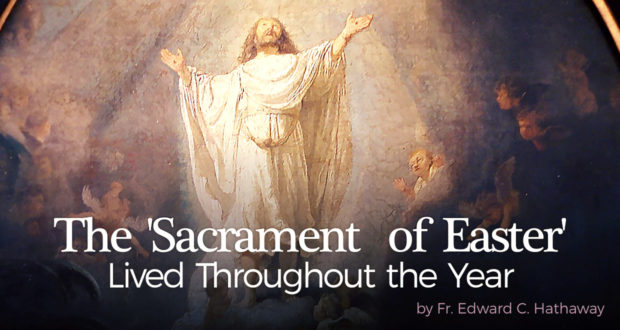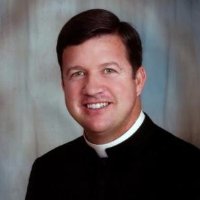In His apostolic letter Dies Domini, Saint John Paul II reminds us that “The Lord’s Day – as Sunday was called from Apostolic times – has always been accorded special attention in the history of the Church because of its close connection with the very core of the Christian mystery. In fact, in the weekly reckoning of time, Sunday recalls the day of Christ’s resurrection. It is Easter which returns week by week, celebrating Christ’s victory over sin and death…” (DD, 1).
In connecting Sunday with Easter, Saint John Paul II followed an ancient tradition in the Church. At the beginning of the 5th century, Pope Innocent I wrote that “[W]e celebrate Sunday because of the venerable Resurrection of Our Lord Jesus Christ, and we do so not only at Easter but also at each turning of the week.” Saint Basil proclaimed “holy Sunday, honored by the Lord’s Resurrection, the first fruits of the other days,” and Saint Augustine called Sunday “a sacrament of Easter.”
Truly, the Day of the Lord
The Second Vatican Council reaffirmed that “every seven days, the Church celebrates the Easter mystery. This is a tradition going back to the Apostles, taking its origin from the actual day of Christ’s resurrection – a day thus appropriately designated ‘the Lord’s Day’” (SC, 106).
If Christians in the midst of the world are to keep alive a Christian culture and the spirit of Easter throughout the year, it is essential to truly live Sunday as “the Day of the Lord.” Man is an image of God, and God is a community of persons (the Blessed Trinity). By gathering as a parish family to celebrate and receive the Holy Eucharist each Sunday and then “resting in the Lord” as a family for the remainder of the day, we become practically what we are in truth, an image of the triune God Who is love.
Certainly there are obstacles in our contemporary culture to living Sunday as a day of worship and rest. Saint John Paul II noted in 1998 that, “Until quite recently, it was easier in Christian countries to keep Sunday holy because it was an almost universal practice and because, even in the organization of civil society, Sunday rest was considered a fixed part of the work schedule…
Unfortunately, when Sunday loses its fundamental meaning and becomes merely part of a ‘weekend,’ it can happen that people stay locked within a horizon so limited that they can no longer see ‘the heavens.’ Hence, though ready to celebrate, they are really incapable of doing so. The disciples of Christ, however, are asked to avoid any confusion between the celebration of Sunday, which should truly be a way of keeping the Lord’s Day holy, and the ‘weekend,’ understood as a time of simple rest and relaxation” (DD, 4).
The Heart of Sunday’s Activity
Saint John Paul invites us to rediscover Sunday, for “the Lord’s Day is the lord of days.” You can do this with your family in a myriad of practical ways, beginning with making Sunday Mass the heart of each Sunday’s activity. This will involve preparation that is remote, proximate, and immediate.
1. Our remote or day-to-day preparation is living a moral life, a life of prayer and charity, and receiving the Sacrament of Penance regularly, perhaps once a month.
2. Our proximate preparation includes going to bed at a reasonable hour the night before so that we are properly rested for our Sabbath day celebration, as well as avoiding the excesses that we sometimes note in the area of food, drink, and late Saturday nights. Studying the readings for the week’s liturgy and discussing them as a family the night before also helps to focus attention and participation at Holy Mass. Dressing modestly and with good taste sets a tone of respect for the highlight of our week and life as Christians, as does allowing plenty of time to arrive for Holy Mass in advance of its starting time.
3. Our immediate preparation before Mass involves a recollected spirit and prayer before our Eucharistic Lord Who is present in the tabernacle.
In addition to being a day of participation at Holy Mass, Sunday also should be a day of sharing in the Creator’s joyful rest. As Saint John Paul noted, “Through Sunday rest, daily concerns and tasks can find their proper perspective: the material things about which we worry give way to spiritual values; in a moment of encounter and less pressured exchange, we see the true face of the people with whom we live. Even the beauties of nature … can be rediscovered and enjoyed to the full” (DD, 67).
A family brunch, celebratory meal, games and outings all help the family to rediscover what Sunday really is, a sacrament of Easter lived throughout the year.

 Seton Magazine Catholic Homeschool Articles, Advice & Resources
Seton Magazine Catholic Homeschool Articles, Advice & Resources

